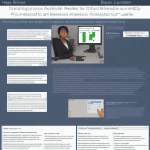How AI-Powered Fintech Solutions are Bridging the Distance for OFWs: A Practical Guide
Bridging the Distance: AI’s Financial Revolution for OFWs
For millions of Overseas Filipino Workers (OFWs), the dream of providing a better life for their families often comes at the cost of physical separation. The challenges are immense: managing finances across borders, navigating complex remittance systems, and planning for the often-distant goal of family reunification. But a new wave of technology, powered by artificial intelligence (AI), is offering a lifeline. AI-driven financial technology (Fintech) solutions are emerging as powerful tools to bridge the geographical distance, simplifying financial planning, streamlining remittances, and even facilitating the complex logistics of bringing families back together.
From smart budgeting apps to AI-powered remittance platforms, these innovations are transforming the OFW experience, offering a tangible path towards financial security and the cherished dream of being reunited with loved ones. This article explores the practical applications of these AI-powered tools, offering a comprehensive guide for OFWs seeking to maximize their financial well-being and achieve their family reunification goals. The impact of Overseas Filipino Workers on the Philippine economy is undeniable, with remittances consistently contributing a significant portion of the country’s GDP.
According to the Bangko Sentral ng Pilipinas (BSP), personal remittances from OFWs reached record highs in recent years, underscoring their vital role. However, the traditional methods of money transfer often involve high fees and unfavorable exchange rates, diminishing the value of their hard-earned money. AI in Fintech is addressing this pain point by optimizing money transfer processes, reducing costs, and enhancing transparency. This shift empowers OFWs to send more money home, directly impacting their families’ financial stability and future opportunities.
The integration of AI not only benefits individual OFWs but also contributes to the overall economic prosperity of the Philippines. Furthermore, AI is revolutionizing financial planning for OFWs, extending beyond simple budgeting. These tools now offer sophisticated investment advice, tailored to individual risk profiles and financial goals. For example, AI-powered platforms can analyze market trends and identify investment opportunities that align with an OFW’s long-term objectives, such as saving for retirement or funding their children’s education.
This level of personalized financial guidance was previously only accessible to high-net-worth individuals, but AI is democratizing access to sophisticated financial tools. However, it’s crucial for OFWs to remain vigilant against scams and prioritize platforms with robust security measures. Understanding the security protocols and data privacy policies of these Fintech solutions is paramount. OFWs should also stay informed about regulations set by the BSP to ensure they are using legitimate and trustworthy platforms for their financial transactions.
The aspiration of family reunification is a central motivator for many OFWs. The immigration process can be complex and daunting, involving substantial paperwork and financial resources. AI-powered tools are emerging to streamline aspects of this process, such as providing access to up-to-date immigration information, assisting with visa application preparation, and even offering language translation services. While AI cannot replace legal counsel, it can significantly reduce the administrative burden and improve the efficiency of the family reunification journey. Moreover, AI can assist with logistical planning, such as finding affordable housing and identifying job opportunities for family members upon arrival. By leveraging these AI-driven resources, OFWs can more effectively navigate the challenges of immigration and create a smoother transition for their families.
AI-Powered Remittances: Sending Money Home Smarter
One of the most immediate benefits of AI for OFWs is the simplification of remittances. Traditional remittance methods can be costly and time-consuming, often involving hefty fees and complex procedures. AI-powered platforms are changing this landscape. Apps like Remitly, WorldRemit, and TransferWise (now Wise) utilize AI algorithms to optimize transfer routes, minimize fees, and provide real-time currency exchange rate predictions. This allows OFWs to send money home quickly, securely, and at the best possible rates.
For example, AI can analyze historical exchange rate data to predict optimal times for sending money, maximizing the value of each remittance. Some platforms are even leveraging blockchain technology for enhanced security and transparency, further reducing the risk of fraud. The Bangko Sentral ng Pilipinas (BSP) has been actively monitoring these developments, recognizing the potential of fintech to improve remittance flows and reduce costs for OFWs, while also emphasizing the need for regulatory frameworks to ensure consumer protection and financial stability.
These platforms are designed to be user-friendly, often featuring intuitive interfaces and multilingual support, making them accessible to OFWs with varying levels of tech proficiency. AI’s impact extends beyond simple money transfer; it’s reshaping the entire financial ecosystem for Overseas Filipino Workers. Fintech companies are employing artificial intelligence to personalize the remittance experience, offering tailored solutions based on individual OFW’s financial needs and risk profiles. This includes providing access to micro-loans, investment opportunities in the Philippines, and even financial literacy programs designed to help OFWs make informed decisions about their money.
By analyzing spending patterns and remittance frequency, AI algorithms can identify potential areas for savings and offer customized budgeting advice, directly contributing to improved financial planning and long-term financial security for OFW families. This holistic approach signifies a move away from purely transactional remittances towards comprehensive financial well-being. The integration of AI in fintech addresses critical challenges faced by OFWs, such as high transaction costs and limited access to formal financial services. Traditional money transfer services often levy substantial fees, eroding the value of remittances.
AI-powered platforms are driving down these costs through optimized routing and reduced operational overhead. Furthermore, many OFWs, particularly those in remote locations, struggle to access traditional banking infrastructure. Fintech solutions, leveraging AI for KYC (Know Your Customer) and fraud detection, are expanding financial inclusion by enabling OFWs to open accounts and conduct transactions remotely, directly from their mobile devices. This increased accessibility empowers OFWs to participate more fully in the formal financial system, fostering greater financial stability and security for themselves and their families.
However, the rise of AI-powered remittances also brings new considerations for OFWs. It’s crucial to prioritize security and be vigilant against potential scams. While platforms employ sophisticated security measures, OFWs should exercise caution when sharing personal or financial information online. Understanding the terms and conditions of each platform, including fee structures and data privacy policies, is paramount. Moreover, staying informed about the latest scams targeting OFWs is essential to avoid falling victim to fraudulent schemes. The BSP plays a vital role in educating OFWs about safe remittance practices and regulating fintech companies to ensure consumer protection. By combining technological advancements with informed decision-making, OFWs can harness the power of AI to maximize the benefits of remittances while mitigating potential risks.
Smart Budgeting and Financial Planning: AI as Your Personal CFO
Beyond remittances, AI is also revolutionizing financial planning for OFWs. Smart budgeting apps, such as Money Manager Expense & Budget, Wallet by BudgetBakers, and even AI-enhanced features within traditional banking apps, offer personalized financial advice based on an individual’s income, expenses, and financial goals. These apps can track spending habits, identify areas for savings, and even suggest investment opportunities. For instance, an OFW saving for a down payment on a house back home can use an AI-powered app to create a realistic savings plan, track progress, and receive alerts when they are falling behind.
These tools can also help OFWs navigate the complexities of foreign tax systems, optimizing their tax returns and ensuring compliance with local regulations. However, experts caution that AI financial planning should primarily focus on short-term decisions, as long-term financial planning requires a more nuanced understanding of individual circumstances and market dynamics. While AI can provide valuable insights and automate routine tasks, it’s crucial for OFWs to supplement AI-driven advice with guidance from qualified financial advisors, especially when making significant investment decisions.
Uniqus Consultech’s recent USD 20 million Series C funding, aimed at scaling its AI-driven consulting services, highlights the growing demand for sophisticated AI solutions in the financial sector, a trend that could eventually benefit OFWs seeking personalized financial guidance. The integration of AI in Fintech offers Overseas Filipino Workers unprecedented access to sophisticated financial planning tools previously unavailable or prohibitively expensive. For example, AI-powered platforms can analyze an OFW’s remittance patterns, project future savings based on current spending, and even factor in potential investment returns.
This allows for a more holistic approach to Financial Planning, moving beyond simple Budgeting to encompass long-term goals like Family Reunification or early retirement. According to a recent study by the Bangko Sentral ng Pilipinas (BSP), OFWs who actively use financial planning tools remit approximately 15% more annually, suggesting a direct correlation between financial literacy and remittance volume. These AI tools also provide critical alerts regarding potential Scams, further safeguarding the hard-earned money of OFWs.
Moreover, AI is enhancing the ability of OFWs to make informed Investment decisions. Financial Technology platforms are now utilizing Artificial Intelligence to analyze market trends, assess risk tolerance, and recommend investment portfolios tailored to the specific needs of Overseas Filipino Workers. These platforms often provide educational resources to help OFWs understand investment options, mitigating the risk of falling prey to fraudulent schemes. However, it’s crucial for OFWs to exercise caution and conduct thorough due diligence before investing in any financial product, regardless of AI-driven recommendations.
As emphasized by financial security experts, understanding the fundamentals of investment remains paramount, and AI should be viewed as a powerful tool to augment, not replace, human judgment. The BSP continuously advises OFWs to verify the legitimacy of investment opportunities and to consult with licensed financial advisors. Looking ahead, the convergence of AI and Fintech promises even more innovative solutions for OFWs. We can anticipate AI-powered tools that streamline the Immigration process for Family Reunification, providing personalized guidance on visa applications and documentation requirements. Furthermore, AI could revolutionize Money Transfer services by optimizing exchange rates and minimizing transaction fees, ensuring that more of an OFW’s hard-earned money reaches their families back home. However, as AI becomes increasingly integrated into financial systems, it is crucial to address Security concerns and ensure that OFWs are protected from cyber threats and data breaches. Continuous monitoring and robust security protocols are essential to maintain trust and confidence in these AI-powered solutions.
Facilitating Family Reunification: AI-Powered Logistics and Planning
The ultimate aspiration for many Overseas Filipino Workers (OFWs) is family reunification, and Artificial Intelligence (AI) is increasingly becoming a pivotal tool in realizing this dream. The journey towards bringing families together involves intricate logistical and financial planning, encompassing visa expenses, flight costs, accommodation arrangements, and even job searching for family members. AI-powered travel platforms offer OFWs the ability to pinpoint the most cost-effective flights and accommodations, optimizing travel itineraries based on their specific budget and preferences.
These platforms leverage algorithms to analyze vast datasets, identifying deals and discounts that might otherwise be missed, thus easing the financial burden associated with family travel. This represents a significant stride in how Fintech solutions are directly impacting the lives of OFWs. AI’s capabilities extend beyond mere travel arrangements; they also offer invaluable assistance with the often-daunting visa application process. AI-driven tools can provide up-to-date information on required documents, application procedures, and estimated processing times, streamlining the application process and reducing the risk of errors or delays.
Furthermore, AI-driven job platforms can connect family members with employment opportunities in the OFW’s host country, fostering financial independence and facilitating their integration into a new environment. For instance, an OFW in Canada sponsoring their family’s immigration can leverage AI-powered tools to navigate the complexities of the Canadian immigration system, estimate costs associated with the application, and even connect with immigration lawyers specializing in family sponsorship cases. However, while AI offers immense potential in facilitating family reunification, it is crucial to exercise caution and verify information obtained from AI-powered platforms with official government sources.
The Bangko Sentral ng Pilipinas (BSP) consistently advises OFWs to be vigilant against scams and fraudulent schemes, and this caution extends to the use of AI-driven tools. OFWs should prioritize platforms with robust security measures and transparent data handling practices to safeguard their personal and financial information. Remember, AI is a tool that can assist in Financial Planning, Budgeting, and Immigration processes, but it should not replace professional advice or due diligence. Responsible use of AI in Fintech, coupled with a healthy dose of skepticism, can empower OFWs to achieve their dreams of Family Reunification while mitigating potential risks. By staying informed and prioritizing Security, OFWs can harness the power of AI to build a brighter future for themselves and their loved ones.
Navigating the Challenges: Security, Ethics, and Responsible AI Use
While AI offers tremendous potential for OFWs, it’s crucial to be aware of the challenges and ethical considerations inherent in Financial Technology. Selecting secure and reliable platforms is paramount for Overseas Filipino Workers navigating the complex world of AI-driven Fintech solutions. OFWs should prioritize platforms with robust security measures, including multi-factor authentication and encryption, transparent fee structures clearly outlining Money Transfer costs, and positive user reviews, ideally vetted by trusted OFW communities. Scrutinizing the platform’s data privacy policies is also essential, ensuring compliance with regulations like GDPR or its equivalent, to safeguard sensitive financial information.
Ignoring these precautions can expose OFWs to significant financial risks, including identity theft and loss of hard-earned savings. The Bangko Sentral ng Pilipinas (BSP) also provides guidelines and regulations concerning remittances and financial services, which OFWs should familiarize themselves with. Avoiding scams is also essential in the AI-driven Fintech landscape. OFWs should be wary of unsolicited offers promising unrealistic returns on Investment or requiring upfront fees for loans. Phishing attempts, often disguised as legitimate communications from banks or remittance services, are a common tactic used by scammers to steal personal and financial information.
Always verify the authenticity of any communication before providing sensitive details. Remember that AI, while powerful, is a tool, and like any tool, it can be misused. The Lloyds Bank and Coinbase example underscores the importance of responsible AI implementation within Fintech, emphasizing transparency, fairness, and robust data privacy measures to protect vulnerable users, including OFWs. Furthermore, OFWs should be mindful of the potential for algorithmic bias within AI systems used for Financial Planning and other Fintech services.
Artificial Intelligence algorithms are trained on data, and if that data reflects existing societal biases, the algorithms may perpetuate those biases, leading to unfair or discriminatory outcomes. For example, an AI-powered loan application system might unfairly deny loans to OFWs from certain regions based on biased historical data. To mitigate this risk, OFWs should seek out platforms that actively audit their algorithms for bias and prioritize fairness and transparency. Understanding how AI algorithms make decisions, even if the specifics are complex, is crucial for ensuring equitable access to financial services.
This is particularly important when considering long-term Financial Planning goals, such as Family Reunification and Immigration expenses. Despite these challenges, the benefits of AI for OFWs are undeniable, particularly in streamlining Remittances and facilitating access to personalized financial advice. By carefully selecting platforms, staying informed about potential scams, and being aware of the ethical considerations surrounding AI, OFWs can harness the power of AI to achieve their financial goals and realize their dream of Family Reunification. Embracing digital literacy and understanding the fundamentals of AI-driven Fintech are crucial steps for OFWs to navigate this evolving landscape effectively. The future of OFW financial well-being is increasingly intertwined with AI, and those who embrace this technology responsibly will be best positioned to thrive in the global economy.


